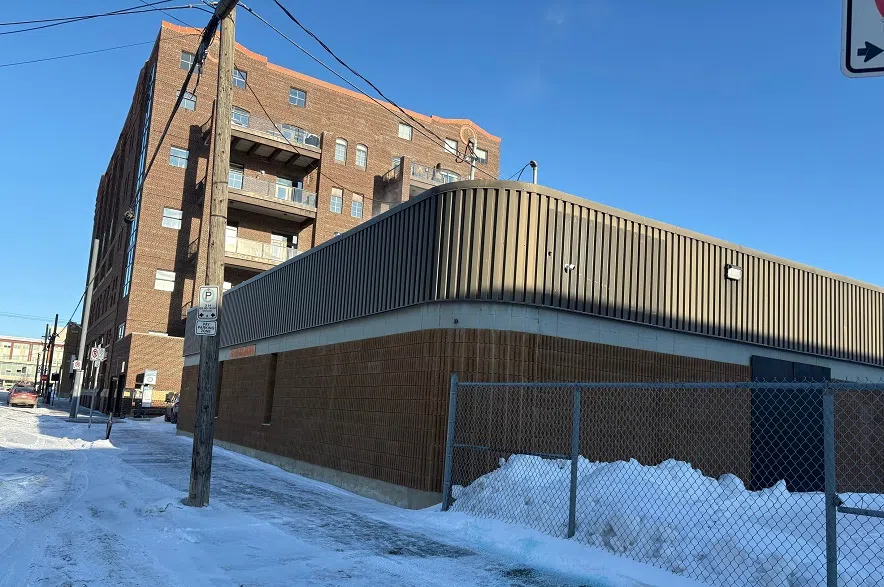On Thursday, Saskatoon’s City Council unanimously approved funding plans for the downtown temporary emergency shelter, which has over doubled in cost.
The 35-bed emergency shelter located on Pacific Avenue is set to open in March of 2025 and was originally supposed to be covered by a provincial grant of $250,000.
However, the new estimated cost for the 18-month project sits at $610,000, according to a recent report from the city. Now the city will fund the gap through its reserves while pushing for more provincial and federal funding to reimburse the $360,000 shortfall.
In addition, the city will also give the Sask. Housing Corporation a tax break on the property.
Zach Jeffries, Ward 10 Councillor expressed frustration with the lack of support from the province in terms of the temporary shelter’s project. He stated the city has worked to avoid delays, even though the project is not under the city’s jurisdiction.
“The folks who are not housed right now in these cold temperatures deserve the same urgency from the province as they have had from our administration,” he said.
Saskatoon’s Mayor Cynthia Block said the shelter was supposed to open in January, but a lack of resources led to the delays.
Block said councillors are taking their work seriously to ensure individuals are safe and can transition out of homelessness.
“I think that’s really a pretty big part of the overall plan the city is putting forward. We need the urgency of those shelter spaces, and we need the provincial government with us at the table to be able to make that work,” Block told reporters on Thursday.
“Those transitional pieces are also going to be very important, and we will require those operational dollars as well, in partnership,” she said.
Community Encampment Response Plan Approved
On Thursday , council also approved recommendations to move an encampment response plan forward. The project uses $4.5 million dollars in federal funds to develop “new supportive housing units combined with a community space.”
Now the administration will look for a project partner to build the units and will also oversee a feasibility study for a possible Community Navigation Center.
The federal contribution under the Unsheltered Homelessness and Encampments Initiative requires the city to match the funding, which the city must spend by March 31 2026.
The funds will be distributed $3.8 million for 30 new supportive housing units and community space, $400,000 for a Community Navigation Centre Feasibility Study and $275,000 towards a permanent shelter project.
Lesley Anderson, the city’s director of planning and development, said all funds matched by the city have already been committed to relevant related work such as the $200,000 for the city’s warming centers, and garbage cleanup from previous encampments.
She also said initiatives proposed at city council’s meeting on Thursday will provide a safe place for the homeless population — that has nearly tripled over the last two years — but will make a small dent in fixing the issue due to the limited availability of units.
When asked if council’s approval of Thursday’s homelessness initiatives would be enough to meet the demand the city is seeing, Block replied “no.”
“We need a lot of resources to be able to start to see some meaningful change,” Block said, adding that all orders of government need to take aggressive action to tackle the issue.
“The things that we have been doing in recent years, they’ve been pretty reactive, and what we need is to be proactive.
“Proactive would mean ensuring that we have that wide angle lens and that full ability to move forward with a coordinated plan in our city.”
In a statement from the Ministry of Social Services, it said the Government of Saskatchewan is working closely with the City of Saskatoon and other partners to support the opening of the temporary shelter.
“As owners of the facility, the City of Saskatoon is project managing the renovations to the building with the Government of Saskatchewan having earmarked $250,000 toward the cost of required renovations,” it said in a statement.
Once the shelter opens, the government said it will also provide operating funding based on the ministry’s funding model for enhanced shelter spaces.
“Enhanced spaces offer 24/7 access, three daily meals, health care services, mental health and addiction support, case management that addresses the specific needs of a client, and support transitioning to longer term housing,” it said.
The shelter is set to open in March 2025.











